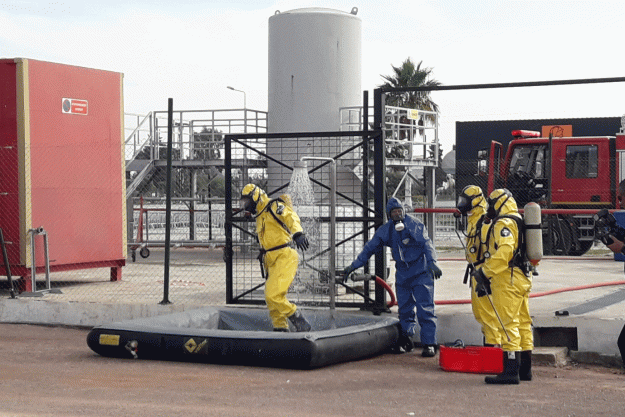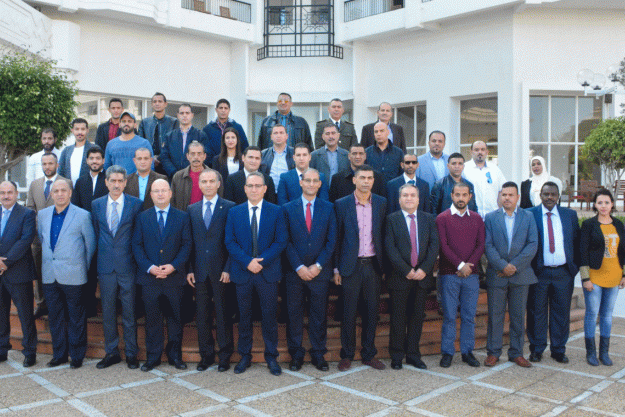
Participants at the 4th regional basic training course on Assistance and Protection against Chemical Weapons
THE HAGUE, Netherlands — 19 November 2018 — First responders from Arabic speaking countries in the Middle East and Northern Africa upgraded their capabilities in responding to emergencies involving chemical warfare agents and other toxic chemicals, after a training facilitated by the Organisation for the Prohibition of Chemical Weapons (OPCW) in Tunis, Republic of Tunisia, from 11-16 November.
The 4th regional basic training course on Assistance and Protection against Chemical Weapons benefited 35 participants from various agencies involved in chemical emergency response and civil defence from Algeria, Bahrain, Iraq, Jordan, Lebanon, Morocco, Qatar, Saudi Arabia, Sudan, Tunisia and United Arab Emirates.
Senior Programme Officer from the Assistance and Protection Branch of the OPCW, Mr Shahriar Khateri, underlined the importance of building regional capacities to respond to chemical attacks, stating that “such training courses assist OPCW Member States in fortifying their chemical emergency preparedness and in establishing a professional network in the region”.
The course provided information on the types and characteristics of toxic chemicals, the use of individual protective equipment, the detection, sampling, monitoring and decontamination of toxic chemicals, and first aid in the event of chemical casualties.
The event also included practical training and a joint field exercise with the Tunisian Civil Protection teams on responding to a toxic chemical incident.
The graduates of this basic training will progress to an advanced course that will be held in Jordan in 2019.

Background
As the implementing body for the Chemical Weapons Convention, the OPCW, with its 193 Member States, oversees the global endeavour to permanently eliminate chemical weapons. Since the Convention’s entry into force in 1997, it is the most successful disarmament treaty eliminating an entire class of weapons of mass destruction.
Over 96% of all chemical weapon stockpiles declared by possessor States have been destroyed under OPCW verification. For its extensive efforts in eliminating chemical weapons, the OPCW received the 2013 Nobel Peace Prize.
